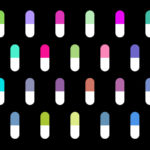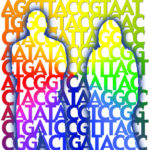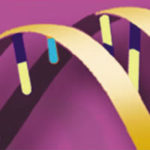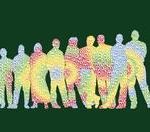Why 23andMe is Not for Me — Yet
A year ago I posted Direct-to-Consumer Genetic Testing: A New View, describing the unveiling of dtc testing at the American Society of Human Genetics meeting back in 2007 – to shock and antagonism – and my change of heart after learning of two friends grateful for their results from 23andMe.
On November 22, FDA sent 23andMe a letter warning that their “Personal Genome Service,” marketed as “information,” is in fact a medical device and in violation of the Federal Food, Drug and Cosmetic Act. Reading the letter I recalled FDA’s letter blasting the researcher under whose watch an 18-year-old died in a clinical trial for gene therapy. That letter was a valentine compared to FDA’s blistering admonishment to 23andMe, which has been very late in complying with many requests for information.
The company has many fans. Yet still I haven’t had my own DNA tested, except for ancestry, which confirmed what grandma told me. 23andMe does what it calls genotyping, a hodgepodge of tests for genes and markers, not exome or genome sequencing.
I got grief for posting Why I Don’t Want to Know My Genome Sequence, also a year ago, from dtc enthusiasts. But since then, I’ve learned that not wanting to know is not unusual among geneticists.
A LESSON FROM THE “INCIDENTAL FINDINGS” SITUATION?
At the ASHG annual meeting in Boston last month, a wonderful talk by Anna Middleton, PhD, a research associate at the Wellcome Trust Sanger Institute in Cambridge, UK, confirmed what I’d noticed about my colleagues. Her work as an ethics researcher and genetic counselor has shown that people’s feelings about how much they want to know about their DNA tracks not so much with age, religion, income level or geography, but with profession.
The talk was part of a session on incidental findings: having a test to diagnose one condition, and finding unexpected evidence of another. (See “Incidental findings from genome sequencing: nuances and caveats” from Scientific American blogs.) Direct-to-consumer testing, of course, isn’t the same as a research study in a clinical setting; multiple findings are intended, not incidental. But the issue of how to handle complex genetic information is similar.
Dr. Middleton and her colleagues recruited nearly 7,000 people from 91 countries, most of whom admitted to knowing nothing about genetics, to take an online survey presenting 10 vignettes about ethical issues raised by genomics. One scenario was deciding which incidental findings a researcher should impart. At the meeting, she reported on the responses from 533 genetic health professionals (clinical geneticists and genetic counselors), 607 genomics researchers, and 843 other health professionals. She found that the three groups tend to be much more conservative about how much data to provide than others, with the genetic health professionals the most hesitant.
“We asked, ‘should research participants receive information on hundreds of conditions at once?’ Genetic health professionals were more likely to say no. Are they being protective about these data? Are they unrealistically overly concerned?” she asked the crowd. Reportable conditions should be those for which a person is at high risk and for which treatment or prevention strategies exist, many health professionals agreed. They should be “actionable.”
Dr. Middleton speculated that some genetics health professionals are concerned about practical matters, such as the time it would take to research and explain the potential impact of dozens of gene variants identified in the genome of a patient. But I think a more important reason for hesitancy among some geneticists, including myself, is the incomplete health picture our genomes paint, for now. And that brings me back to the FDA and its warning to 23andMe.
ARE FALSE NEGATIVES AND POSITIVES POSSIBLE?
The agency is requiring that 23andMe provide evidence of validation of their tests. But that won’t be enough to ensure that false negatives and positives don’t happen, because of the nature of a gene.
Consider just one, BRCA1. When mutant it elevates risk of developing any of several types of cancer – it doesn’t directly cause cancer. Angelina Jolie had a well-known mutation, and that was enough to convince her to have prophylactic surgery. She’s in an ethnic group in which that mutation is associated with a very high risk. If she were from another background, the risk would be lower, and perhaps she wouldn’t have had the surgery. If she never developed the cancer, would her test result have been a false positive? Not really. A mutation is a mutation. But a genotype does not always translate into a phenotype. And how can there even be a false positive if what one is inheriting is risk, not a “yes” or “no”?
If a person takes a 23andMe test for the most common BRCA1 mutations, which was possible until recently, and learns she doesn’t have any of them, she might not read all that 23andMe has to say and assume she can’t develop a BRCA1-associated cancer. But she can. The entire gene must be sequenced to rule out risk, and that requires a much costlier test. Is that result of not having any of the most common mutations then a false negative? Not really. Again, a DNA sequence is a DNA sequence. (Then there are the mysterious VOUS – “variants of uncertain significance” – a gene sequence that’s not the “wild type” or normal, but a variant that hasn’t been associated with developing cancer.)
Why doesn’t a BRCA1 sequence mean the same thing to everyone, just as a word is read the same way by everyone? Because a gene does not act in a vacuum. Genes influence each other’s expression. What happens to inheriting two apoE4 alleles, which hikes the risk of Alzheimer’s 15-fold, if a person also inherits a variant of a different gene (APP) that protects against the condition?
Until we (or an algorithm) decipher all possible interactions among all gene variants, detecting mutations for some genes provides incomplete information. I’d like to wait until we know more before mailing my spit to a dtc company, although ironically the more of us who do so, the sooner we’ll figure it all out. And while I think people have a right to know their DNA sequences if they want to, I fear that many people who are not familiar with how genes interact may take the results too seriously, especially the bad ones.
 A genome sequence and even the smattering of tests that 23andMe offers are a new kind of information, different from a cholesterol level or a spot on an x-ray, and perhaps outside the comfort zone of some if not many physicians. FDA may have to adapt and find a new way to handle the information in genomes. I hope that the agency and the direct-to-consumer company in its crosshairs can find a way to work together — for the benefit of us all.
A genome sequence and even the smattering of tests that 23andMe offers are a new kind of information, different from a cholesterol level or a spot on an x-ray, and perhaps outside the comfort zone of some if not many physicians. FDA may have to adapt and find a new way to handle the information in genomes. I hope that the agency and the direct-to-consumer company in its crosshairs can find a way to work together — for the benefit of us all.




I am having trouble with your example with BRCA1, and with the idea of separating a person’s want and natural right to know their DNA Gene sequences if such a test is available, and the risk of letting them have it.
The BRCA1 example illustrates a person making some critical mistakes. She takes a test that is clearly labelled as not medical advice and not medically relevant, reads the results, and then assumes the outcome that might be associated with problems she learns about while reading the results. If you had the same test done with a doctor’s care, who assumably would want to meet with you afterwards and possibly do the more expensive gene sequence, but instead you assumed the described outcome instead of trusting your doctor, you would be in no better of a place. The object lesson here is: Seek medical advice. I don’t think anyone has a problem with that, in this day and age.
Alternatively, the problem isn’t really in the assumption but in the interpretation of the results. But signing up for the test requires reading clear labels that it is not a substitute for medical advice. So this interpretational error is akin to trusting the results of tea leaves instead of.. again seeking medical advice. Neither approach appears to validate concern about the test being offered, at least to me.
What I am really concerned with in the test is that there is no option, that I am aware of, to have your results *not* kept in their database. Not that I think this is necessary for me but: The freedom of choice is lacking in the market at this moment. It’s actually that same sort of freedom that I am concerned with when I worry that the FDA is going to stop people from having non-medical gene tests. Medical gene tests have medical consequences. They can change your standing with your insurance. A non-medical verification method is a nice option, and there is no reason I can see to prevent people from seeking it.
I agree — consequences of having DNA results in the database can cause problems down the road, even if de-identified because we all know results may not remain that way. Oncology is somewhat of an exception in that many oncologists are expert in genetics and genomics — they have to be, cancer is a somatic genetic disease, and the astoundingly successful new treatments are based on molecular genetics (i.e. Gleevec). Other specialties, not so much. When I’ve asked other docs genetic questions just to assess what they know, I generally get deer-in-the-headlights responses. And I’ve heard anecdotally from readers who take DTC test results to physicians who arrogantly brush them aside. Hopefully that attitude will stop as the new generation of health care providers incorporates genetics and genomics more into clinical care. Thanks for writing!
[…] Why 23andMe is Not for Me — Yet Writer Ricki Lewis expresses well both some important caveats about genetic testing in general and her own reasons for not getting into it … yet. […]
Thank you, Ricki, for your continued elaboration on DTC. When I began investigating this topic, your blog emerged as the most reasoned and relatable. I am unable to articulate any interesting discussion points, but wanted to express my gratitude for your incisive reporting.
Thanks Caroline. In all honesty, I still can’t make up my mind about the whole thing. Today I am working on the final chapter for the 11th edition of my human genetics textbook, and it is all about personal genomics. When I wrote the first edition, back in 1992, what is reality today I presented as a hypothetical that I never thought I’d see in my lifetime. I actually made up a case of two college students taking all these genetic tests. I guess we’ll all be sequenced eventually. Thanks for reading DNA Science!
[…] PLOS Blogs: Why 23andMe is Not for Me — Yet […]
Thanks for your reflections on my comment. This evening, I have been reading about the genetic basis of a chronic illness that runs in my family. I was stunned that recent GWAS have uncovered new information about that incurable disease. I am hopeful about progress, but know it will take many years or decades to achieve targeted diagnostics and treatments that may benefit me personally. I know what I can do right now to promote my health and mitigate my disease risk–better food, more exercise, heartier laughter, and many more hugs and kisses.
Be cautious with GWAS — sometimes they lead to discovery of important genes, but they also may contribute only a tiny amount to risk. Exercise is hugely important!
Yes, I am painfully aware of the drawbacks of GWAS having pursued graduate level studies in epidemiology and biostatistics. But the finding was great in that it pointed to a simple thing I can monitor and regulate–my sleep cycle. GWAS didn’t uncover anything new for this disease, but validated studies that had been conducted in animal models and in clinical trials.
But you are right, Rickie. My life hasn’t changed in the slightest. Eat, exercise, love, and I will add, regular sleep. My daily ritual. That is precisely why I haven’t done DTC.
I’m glad the factor the GWAS identified is something you can control, that’s great. Biostatistics — my downfall. I wish I knew more math. Have you heard of a book called Statistics for Terrified Biologists? I’m thinking of getting it.
Haha, I am not a math person at all. Last math class was calculus in high school. After taking stats 101 twice (failed first time), I liked it. Then advanced stats in grad school. But being a TA and tutoring in statistics solidified the basics for me. Teaching and mentoring forced me to relearn the material from the beginning.
I’m not familiar with the book, but the title is pleasing. You probably more stats than you think: properties of a normal distribution, variability, inferences, Type1/2 errors, and which analysis is appropriate for what data. You wouldn’t need to calculate a regression coefficient or chi-square in real life–that’s what statistical software is for.
[…] Why 23andMe is Not for Me — Yet Writer Ricki Lewis expresses well both some important caveats about genetic testing in general and her own reasons for not getting into it … yet. […]
[…] “Why 23andMe is Not for Me — Yet” at DNA Science Blog […]